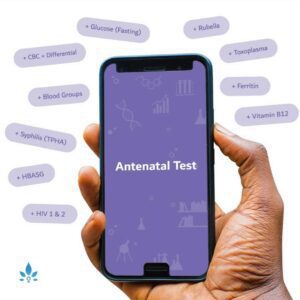What are the Different Types of Obstetric Providers?


As soon as most women have a positive home pregnancy test, they call their doctor to set up their first prenatal visit. This doctor is usually the same OB/GYN who has provided their well-woman care, but your options don’t end with your OB/GYN to provide care during pregnancy. Today, women have a number of options for obstetric providers and can choose the type of provider that most closely matches their medical and personal needs. Here are some of the more common OB providers.
Obstetrician/Gynecologist—An OB/GYN has completed four years of residency (specialty training in this field only) after medical school. He or she provides care to women across their lifetime, including during pregnancy and childbirth. Some OB/GYNs, however, have given up their obstetrics practice because of increasing malpractice costs, so you’ll need to check with your doctor to make sure he or she practices obstetrics. Depending on the practice (solo versus group), when it comes time to deliver you may see your doctor or a partner, so it’s best to figure that out before the big day and make sure you are comfortable with your options.
Maternal Fetal Medicine Specialist—A maternal fetal medicine (MFM) doctor is an OB/GYN who has done additional training (usually 3 years) after residency and supervises high-risk pregnancies. They are also trained to do complex procedures, such as amniocentesis and detailed ultrasounds. MFM doctors may serve as consultants to your OB/GYN (you’ll see both, but your OB/GYN is your primary doctor and will attend your delivery), or they may supervise the care of your entire pregnancy and deliver your baby as well. This can vary from practice to practice. Examples of women who may see an MFM include women with diabetes, a complicated medical history, or those pregnant with twins.
Family Practice Physician—A family physician is a doctor who has trained for 3 years after medical school in this specialty, and they provide primary care across the entire lifespan. Some family doctors are also capable of providing prenatal care and attending deliveries. These physicians who have an interest in obstetrics can gain additional training and experience in this after they finish their residency. This may be more common in rural areas, where they might be the only doctor in town. What’s the biggest benefit of seeing a family doctor for your pregnancy and delivery? The same doctor can care for mother and baby!
Midwife—There are a few different categories of midwives, and it is important to know the difference. The take-home point is that midwifery care is wonderful, but is only appropriate for low-risk women. If you plan to see a midwife for you pregnancy, she will take a careful history and determine if this is right for you. If at any time during the pregnancy an issue arises, she can refer you to a physician either for consultation or to transfer care.
Reviewed by Dr. Jen Lincoln, November 2018
Sources:
- Society for Maternal-Fetal Medicine
- What is maternal fetal medicine?
Powered by Bundoo®













































